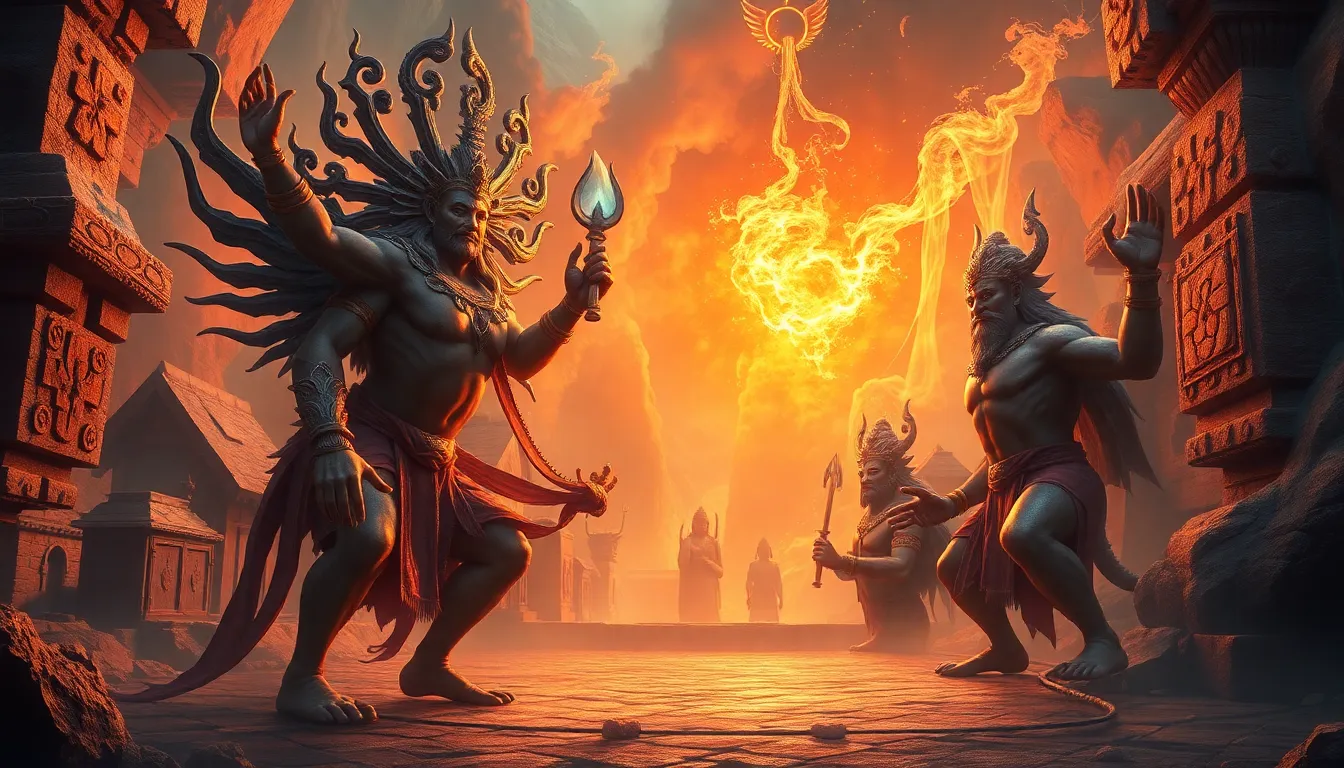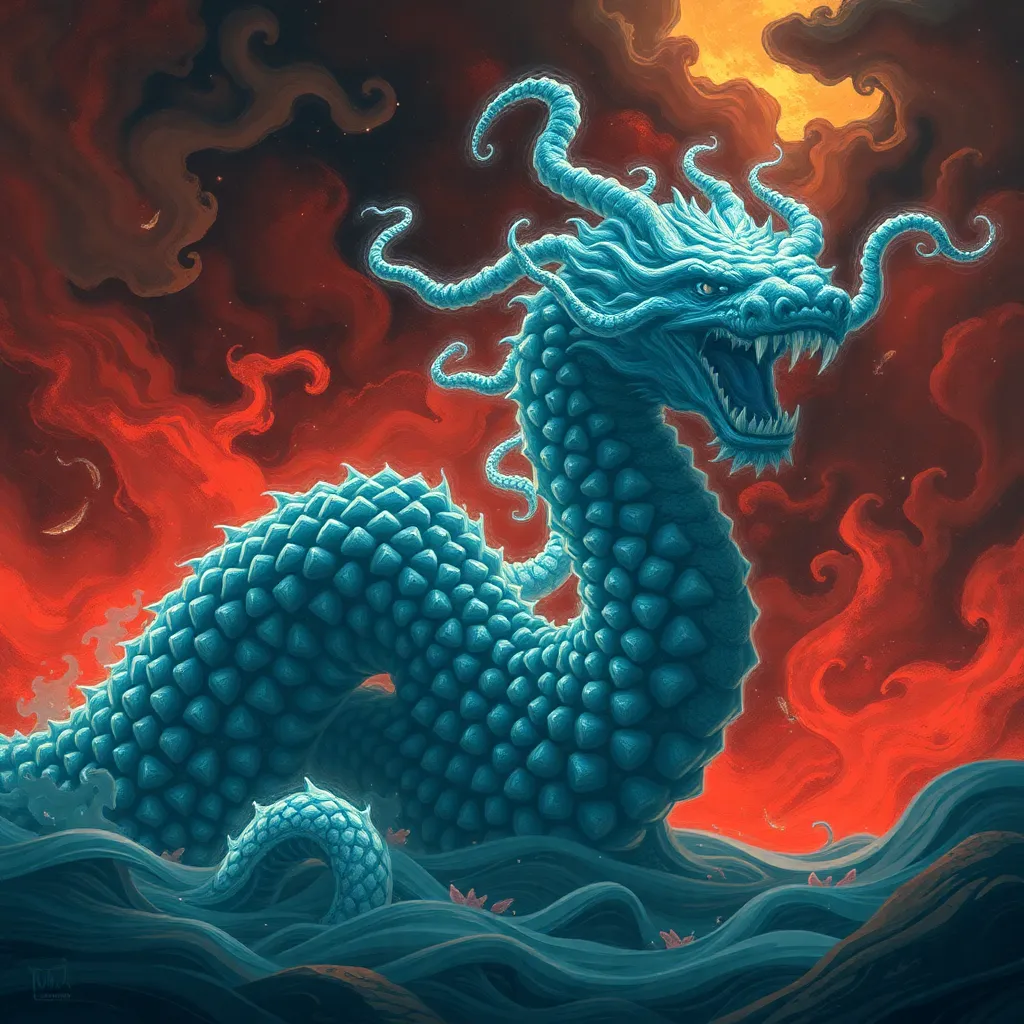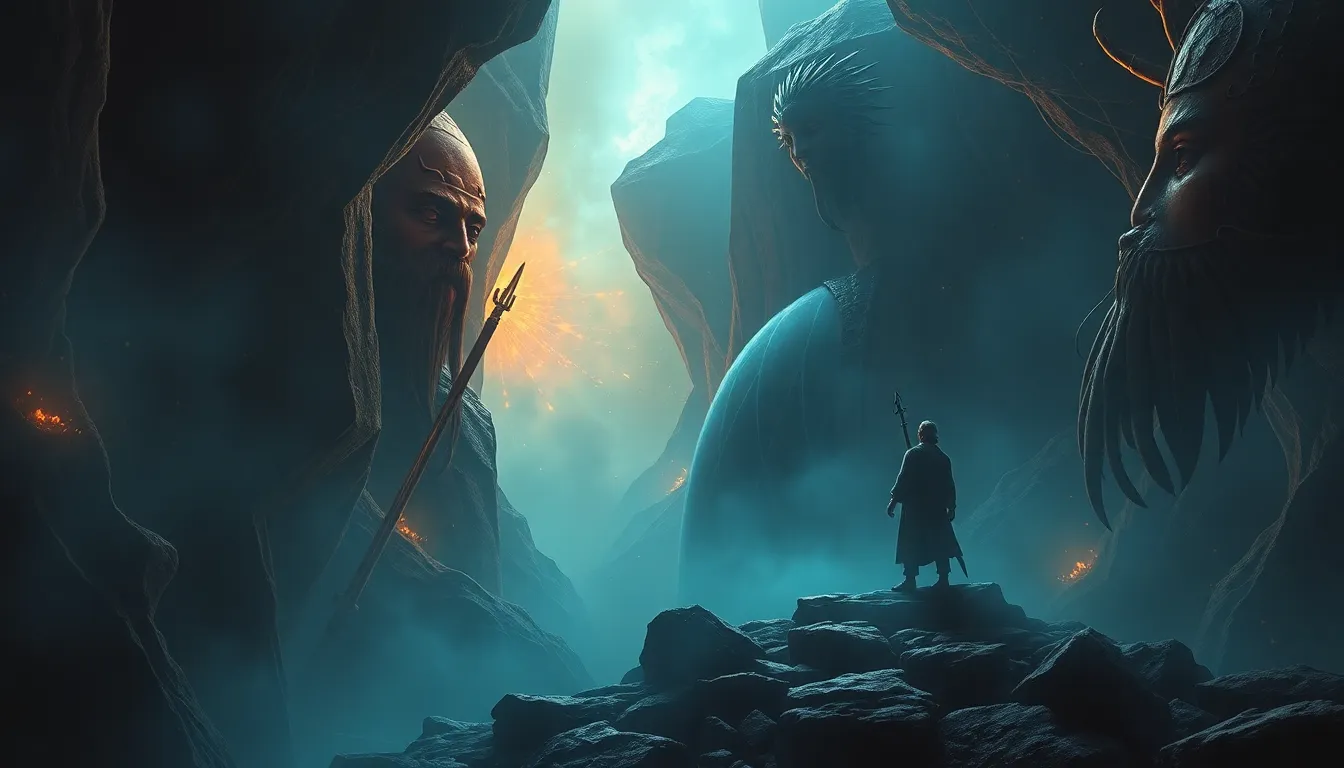The Role of Ancient Deities in Shaping Human Culture
I. Introduction
Ancient deities, often revered as powerful beings embodying various aspects of life and nature, played a pivotal role in the cultural and social development of early human societies. These gods and goddesses were not merely figures of worship, but also served as symbols of moral order, community identity, and explanations for the unknown. Their significance can be seen in the myriad ways they influenced human thought, ethical standards, and artistic expression.
This article explores the profound impact of ancient deities on early civilizations, examining their origins, moral frameworks, artistic representations, and their continued influence on modern religions and psychological well-being.
II. The Origins of Deities in Human Civilization
The origins of deities can be traced back to the earliest human civilizations, where the emergence of polytheism and monotheism marked a significant turning point in religious thought.
- Polytheism: Many ancient cultures, such as those in Mesopotamia and Egypt, worshipped multiple gods, each representing different facets of life.
- Monotheism: Over time, some societies transitioned to monotheistic beliefs, exemplified by the worship of a single deity, as seen in the Hebrew tradition.
Mythology played a crucial role in these cultures, serving as a framework to explain natural phenomena, human experiences, and existential questions. From an anthropological perspective, the worship of deities can be understood as a reflection of human beings’ need for connection to something greater than themselves, providing a sense of belonging and purpose.
III. Deities and Moral Frameworks
Ancient gods were central to the establishment of ethical standards and laws within societies. They often served as the ultimate arbiters of right and wrong, influencing the moral compass of their followers.
For example:
- Greek Mythology: The Greek pantheon, with figures such as Zeus and Athena, provided narratives that emphasized virtues like justice, honor, and loyalty.
- Egyptian Beliefs: The concept of Ma’at represented truth and justice, guiding the actions of both individuals and rulers.
- Hinduism: The Dharma concept in Hindu texts illustrates the importance of righteous living, guided by divine principles.
The interplay between divine commandments and societal norms often shaped the legal systems of these cultures, creating a framework that sought to align human behavior with divine will.
IV. Deities in Art and Literature
The representation of deities in ancient art and architecture reflects their significance in the lives of the people who worshipped them. Temples, sculptures, and paintings often depicted gods in ways that conveyed their power and attributes.
- Art and Architecture: Structures like the Parthenon in Athens and the Pyramids of Giza were designed to honor the gods, showcasing the artistic skills of their creators.
- Literary Works: Deities influenced storytelling traditions, as seen in epic narratives such as the Epic of Gilgamesh, Greek tragedies, and Indian epics like the Mahabharata and Ramayana.
These works not only entertained but also imparted moral lessons and preserved cultural values, ensuring that the legacy of the deities lived on through generations.
V. Rituals and Worship Practices
Rituals associated with ancient deities varied widely across cultures but shared common themes of devotion, community, and the pursuit of favor from the divine.
- Types of Rituals: These included sacrifices, prayers, festivals, and pilgrimages, each serving a specific purpose within the community.
- Social Functions: Worship practices fostered a sense of belonging and unity among community members, reinforcing social bonds and cultural identity.
Over time, these practices evolved, adapting to changes in society, technology, and belief systems, yet the core desire for connection with the divine remained constant.
VI. Deities as Symbols of Natural Forces
Many ancient deities were personifications of natural elements, reflecting humanity’s attempts to understand and control the environment.
- Sun Gods: Cultures like the Incas worshipped Inti, the sun god, who was believed to provide warmth and sustenance.
- Earth and Fertility Deities: Goddesses such as Gaia in Greek mythology and Demeter, the goddess of agriculture, embodied the earth’s bounty and fertility.
- Water Deities: Deities like Poseidon in Greek lore represented the oceans and rivers, highlighting the importance of water for survival.
These nature deities were especially crucial in agricultural societies, where seasonal cycles dictated the rhythms of life and survival.
VII. The Political Power of Deities
The intersection of religion and politics was often evident in ancient civilizations, where deities were instrumental in legitimizing political authority.
- Theocracy: In societies such as ancient Egypt, rulers were often considered divine or semi-divine, reinforcing their authority through religious endorsement.
- Divine Right of Kings: This concept was prevalent in many cultures, where kings claimed their right to rule as ordained by the gods.
Case studies such as the Pharaohs of Egypt, Roman Emperors, and Aztec rulers reveal how deities were employed to consolidate power and unify their subjects under a common religious framework.
VIII. The Influence of Ancient Deities on Modern Religions
The legacies of ancient deities continue to resonate in contemporary faiths, where many ancient beliefs and practices have been adapted or integrated.
- Continuities: Elements of polytheism and the veneration of various saints can be seen in modern religions like Hinduism and certain syncretic faiths.
- Syncretism: The blending of different religious traditions has led to the emergence of unique practices that reflect both ancient and modern beliefs.
Ancient deities’ narratives and moral teachings continue to inspire modern spirituality, providing a rich tapestry of cultural heritage.
IX. The Psychological Impact of Deity Worship
The worship of deities has profound psychological effects on individuals and communities, offering a source of meaning and comfort in times of uncertainty.
- Meaning and Comfort: Belief in deities can provide solace, especially during personal crises or societal upheaval.
- Cognitive and Emotional Aspects: The act of worship engages both cognitive and emotional processes, fostering a sense of connection and transcendence.
- Community Benefits: Shared worship enhances social bonds, creating a supportive network that helps individuals cope with life’s challenges.
X. Conclusion
In summary, ancient deities played multifaceted roles in shaping human culture, influencing moral frameworks, artistic expression, political structures, and psychological well-being. Their legacies continue to endure, reminding us of humanity’s quest for understanding, connection, and meaning in an ever-changing world. As we reflect on the impact of these ancient figures, we recognize that their stories and teachings remain relevant, guiding contemporary spiritual and cultural narratives.



